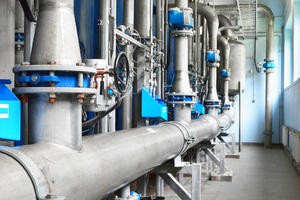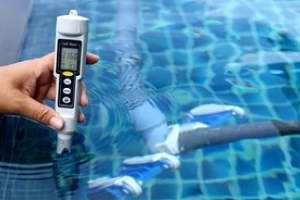 Your building operates efficiently thanks to the consistent hard work of a variety of systems, like your HVAC, electrical and more. But did you realize just how many of these important units are connected to the same water line or share water between them?
Your building operates efficiently thanks to the consistent hard work of a variety of systems, like your HVAC, electrical and more. But did you realize just how many of these important units are connected to the same water line or share water between them?
The water that circulates through your building should be comprehensively treated to prevent deterioration of your pipes and equipment; however, the water treatment that a building across the street uses will likely not be right for your specific needs. When it comes to your boiler in particular, customized water treatment is critical for safety and longevity, saving you money in the long term.
What Your Boiler System Accomplishes For You—And How
As its name implies, a boiler’s purpose is to boil water—typically for heating your building. This water may be circulated through pipes all across your facility to provide heat through radiators, fan coils or other equipment. This means that if your boiler’s water is not properly treated, it could be circulating damaging or contaminated water throughout your entire system.
Over time, you may be facing corrosion and other risks not only within the boiler itself but in all of the pipes that the boiler’s water touches as well. Naturally, this would result in a large-scale repair or replacement project that will likely not be cheap, which is why you should perform comprehensive boiler treatment before problems arise.
The Risks That Boilers Face And How Water Treatment Can Help
While boilers can face a variety of risks due to anything from water composition to the temperature that the water reaches, there are two primary challenges facing any building that operates a boiler: corrosion and scaling. The causes of each of these can vary, but primarily, the evaporation that occurs within the boiler system is the culprit. When water evaporates, it leaves behind dissolved salts that collect on surfaces to form scales.
Since your boiler’s job is to transfer heat into the water in order to warm it, you will likely find that your equipment is working less than optimally once scales have formed, since they are significantly worse (about 15 times worse, on average) at transferring heat. This means that you pay more in your utility bills to achieve the same result. You may also overheat your boiler if it is too thoroughly scaled.
Scaling is not limited to the main drum of the boiler and can also occur on turbines and other critical parts that may cause a system failure if left untreated. Silica is another common culprit here, capable of fouling and corrosion of the turbine blades if the system is under high pressure. This significant pressure volatilizes the silica and makes it problematic.
Similarly, water that is low pH is acidic and can pit the steel that your system is made out of. Over time, pitting occurs, and holes develop in your pipes that could lead to ruptures; not only does this mean a hefty repair of the boiler system itself, but it could also result in associated costs to repair water damage.
 The same thing can happen as a result of dissolved oxygen from the feed water being allowed to enter the boiler itself. Dissolved oxygen has a similarly corrosive effect as low pH water. The best way to prevent this problem is to ensure that the feed water has been appropriately treated; this process may be separate from any treatment occurring in the boiler itself.
The same thing can happen as a result of dissolved oxygen from the feed water being allowed to enter the boiler itself. Dissolved oxygen has a similarly corrosive effect as low pH water. The best way to prevent this problem is to ensure that the feed water has been appropriately treated; this process may be separate from any treatment occurring in the boiler itself.
The good news is that all of the above scenarios are preventable with adequate water treatment. A customized plan that factors in your greatest risks (whether scaling, corrosion or something else) and creates an appropriate balance of chemical treatments, filtration and other options will help to ensure that your system continues to operate safely while avoiding common pitfalls like corroded equipment and narrowed pipes that negatively impact water pressure.
One frequently used option is the creation of a magnetite layer on the inner exposed areas of your tubing so that corrosion cannot get through. A water treatment expert can walk you through all of the potential options.
Trust The Experts To Keep Your Boiler Running Smoothly For Years To Come
A well cared for boiler system can last for as long as 25 years, which means that it is in your best interest to conduct regular boiler treatment. Not only will you save money in your utility bills when your system runs efficiently, but you can avoid hazards and early replacement expenses. The experts at Tower Water understand the nuanced requirements of boiler treatment and would be happy to develop a personalized plan for your facility. Reach out to get started.
